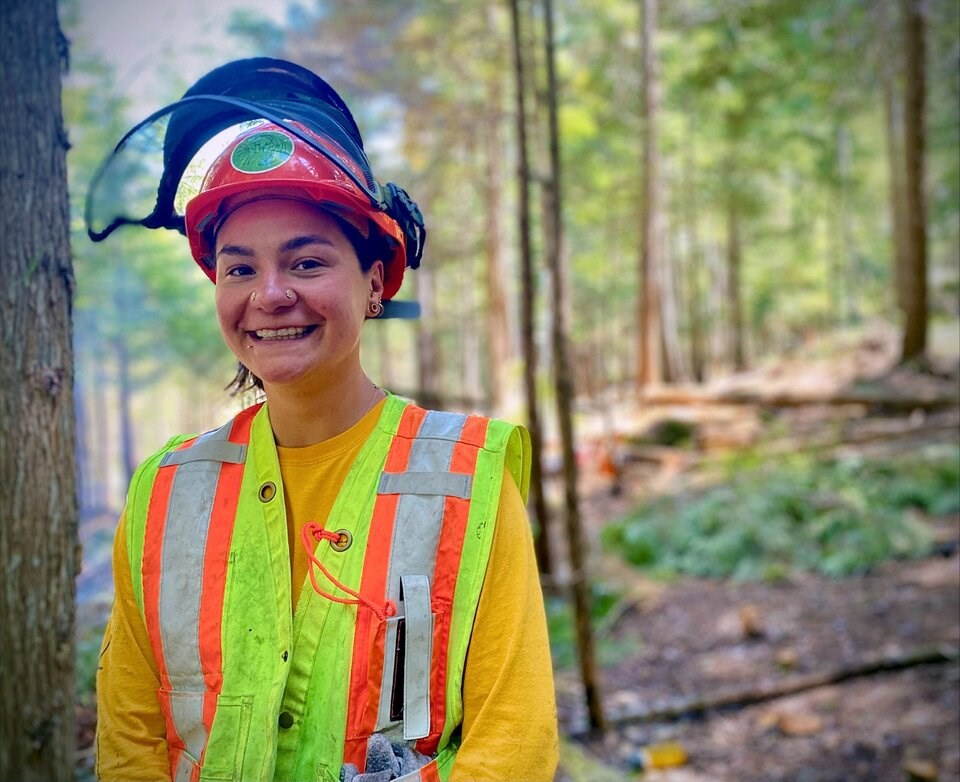A B.C. corps program that trains and hires young people to do jobs that soften the blow of climate change is planning on expanding across the province after it received a $3-million funding boost.
Announced by the province Monday, the money gives the Youth Climate Corps BC leverage to access funding from other sources such as cities. That means it will see a more than tripling of its annual budget to $2 million from $600,000, money that will allow the group to expand beyond current operations centred in the Kootenays, northern Vancouver Island and the Lower Mainland.
“It’s a really big deal,” said Ben Simoni, executive director of the group. “This three million dollars really gives us the ability to scale up our programs.”
“It means that we can really expand our programming, and serve at least another 12 communities.”
Created by the Kootenay-based conservation group Wildsight in 2020, the Climate Corps program pays a "living wage" to young people between 17 and 30 as they get training and work experience related to climate action.
The idea of building regional and even national climate corps has gained traction in recent years. Modelled on the Civilian Conservation Corps of the Great Depression, between 1933 and 1942 the U.S. program put to work about three million workers, who expanded national parks, planted billions of trees, and built hundreds of thousands of dams and roads.
In September 2023, U.S. President Joe Biden rekindled the idea, adapting it for a new era and a new set of problems. The American Climate Corps, said the White House, will train young people in conservation, deploy clean energy projects and advance the ability of communities to adapt to climate change.
Two months later, a Canada-wide survey found 78 per cent of adult Canadians would either back or accept the launch of a national climate corps.
The David Suzuki Foundation-backed group the Climate Emergency Unit, which commissioned the poll, has been actively advocating for the federal government to fund the creation of a Canadian climate corps that would create 20,000 jobs with a $1-billion-a-year investment.
Signing up for a two-year stint would provide participants with a living wage, help communities cope with wildfires, heat waves or flooding events, and build new infrastructure to rehabilitate nature and drive down the release of carbon pollution.
“Young people across B.C. grew up witnessing the increasingly damaging effects of a changing climate,” Minister of Environment and Climate Change Strategy George Herman said in a statement from Nelson Monday.
Youth Climate Corps BC would give young people “tools they need” to confront climate change at a vulnerable moment, he said.
So far, the B.C. program has helped communities build up local food sources, improve energy efficiency, and reduce wildfire risk.
Outside of Nelson, a program to thin out the forests of a nearby provincial park aimed to restore ecosystems, prevent wildfires and improve drinking water for the nearby community. Back in town, young workers installed solar panels and heat pumps, and retrofitted windows and doors at a home for adults with developmental disabilities. The building now has a lower carbon footprint and is more comfortable during extreme heat and cold.
At another program in Kamloops, young participants worked with the city to deliver an education program teaching residents how to better climate-proof their homes during extreme weather, and how to reduce their greenhouse gas emissions while lowering energy costs. Roughly 80 per cent of the people who took the assessment later said they would make changes to homes.
And on the north end of Vancouver Island, young people worked to rejuvenate Kwakwaka'wakw traditional cultural and land management practices.
Simoni says the group launched its latest program in Squamish last week, hiring five young people to carry out air sealing work in people’s homes to help them reduce the cost of heating and cooling, while keeping out wildfire smoke.
The group also recently received a green grant from the City of Vancouver and is looking to expand south on Vancouver Island to places like Courtenay, a community that just passed a resolution to work with the Climate Corps.
While the B.C. program offers a model to test out that national vision, some trades people working with the Climate Corps have raised concerns that those entering the program don't have the training required to do skilled work, like installing heat pumps.
Simoni said he is currently developing partnerships with trade schools, so young people in the program can get the training they need.
Another place Simoni wants to expand is B.C.’s northeast, the heart of the province’s oil and gas industry, and the region with the highest percentage of young people per capita.
“They have limited economic opportunities outside of oil and gas,” Simoni said. “It just takes programs.”
“We see it as a really cost-effective way to scale up climate action.”




